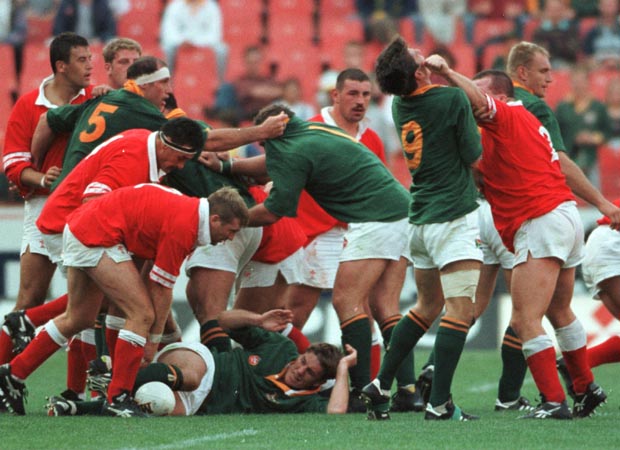 South Africa. The graveyard of Welsh rugby. Nowhere in the world, over the last 50 years, have Wales been put away with less fuss and ceremony. High veldt or sun-kissed coast, Wales have suffered eight straight defeats in the Rainbow nation including the mother of all hammerings, a 96-13 annihilation in Pretoria in 1998 after which many observers finally declared Welsh rugby dead and buried. Bereft of all life, expired. An ex-rugby nation.
South Africa. The graveyard of Welsh rugby. Nowhere in the world, over the last 50 years, have Wales been put away with less fuss and ceremony. High veldt or sun-kissed coast, Wales have suffered eight straight defeats in the Rainbow nation including the mother of all hammerings, a 96-13 annihilation in Pretoria in 1998 after which many observers finally declared Welsh rugby dead and buried. Bereft of all life, expired. An ex-rugby nation.
Graham Henry, having been made an offer he couldn't refuse, arrived on a white charger to breathe life back into the Welsh Dragon on that occasion and it's not the first time a visit to South Africa has provided a pivotal moment in Welsh rugby history.
Fifty years ago they returned from their first ever tour of South Africa, in fact their first tour anywhere, so traumatised by the heaviest Wales Test defeat in 30 years that the WRU set up a working party to address the issue. As everybody knows the WRU's unofficial motto is in dubio tamen consilii formare – when in doubt form a committee – but in fairness this committee did eventually lead to the radical introduction of a national coach and squad sessions despite the tut-tutting disapproval of the IRB who were still opposed to such nonsense.
Which leaves you wondering what the fall-out will be of this summer's short but demanding tour? Just over a year out from a World Cup which sees Wales in the Pool of Death with England and Australia it feels like an important staging post.
The Six Nations title and a largely Welsh-inspired Lions success of 2013 seem a long time ago and the reality is that Wales have been become wildly inconsistent again and, much to the frustration of Warren Gatland, remain serial underperformers against Southern Hemisphere giants.
Whether a potentially undercooked squad missing a number of key players can reverse that trend remains doubtful but if they could conjure a miracle win from somewhere it would be a huge monkey off their backs.
Wales have always struggled against South Africa, end of story. The Springboks expose Welsh fault lines more harshly than any other team. One win and a draw in 27 games, represents a 5.55 per cent “success” rate which is not a statistic they care to dwell on although, in truth, it should be pinned up in their changing room at Durban on Saturday.
There have been some close calls, not least in Wellington at the 2011 World Cup, but still their only win is that curious match in June, 1999, the ‘building site international', when the Boks sent up a makeshift XV for the most inconvenient of one-off matches in a half-built Millennium stadium and paid the price going down 29-19.
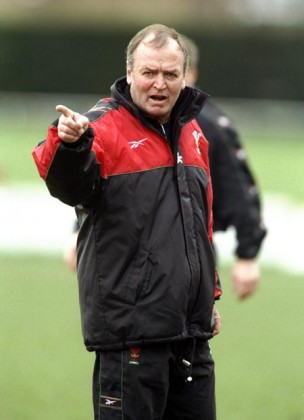
The gory story on South African soil started in 1964 when Wales, stung into action by England jetting off the previous year to New Zealand for the first tour by a Home Union, headed out of Europe for the first time, destination Durban via Kenya. In Nairobi they accounted for the local ex-patriate XV, good pub players at best, none too convincingly.
It was a strong Wales squad, most of their big names from the mid-Sixties were on board, but they were in tactical turmoil.
In an attempt to open up the game and reduce the ridiculous number of low-scoring bore draws in Test rugby, the IRB introduced laws that summer demanding that backlines be ten yards (now metres) back from a lineout and that those back divisions also stay behind the back foot of a scrum, ruck or maul. Attacking rugby and ball in hand were the new mantras.
Not only were Wales the first guinea pigs in the cage, they were the team most in the firing line. Scrum-half Clive Rowlands might have been the master of every touch kick known to man but it was his kicking in their 6-0 win over Scotland at Murrayfield in 1963, when there were reportedly 111 lineouts, that precipitated the crisis in world rugby.
Nobody was going to pay good money much longer to watch that. Rowlands has always disputed the exact figure – it does seem a tad improbable – but concedes that it was a quite lot.
Before the tour the WRU organised three Trial matches in Ebbw Vale, Caerphilly and Llanelli to test the new laws as much as anything and it wasn't a huge success as they discovered once the serious rugby started. After squeezing past the Nairobi Nondescripts and with just a 17-6 warm-up win against modest Boland side, Wales were beaten 24-3 at King's Park, Durban, their heaviest defeat in 30 years.
Wales hadn't worked this touring lark at all as John Dawes, then a young centre, recalled: “We concentrated solely on fitness work, I cannot remember any ball work during our training sessions. We were so fanatical our assistant manager had us doing two physical fitness sessions on the day before the Test when we should have been resting. They each lasted a couple of hours, it was absolutely ridiculous.”
Heroics up front by the pack kept Wales in touch 3-3 at half time after which the floodgates opened and, to the dismay of the Welsh backs, Rowland made no tactical allowances for the new laws: “His kicking kept us in the game until the last 20 minutes,” conceded Dawes. “But while he made sure we didn't go backwards he equally made sure we didn't score. We should have tried to move the ball out to Ken Jones more often because he was our match-winner.”
It was 31 years before Wales felt bold enough to venture down to South Africa again and this time they visited twice in a year. First they fought an undistinguished World Cup campaign memorable mainly for manager Geoff Evans' eve of match Press conference when he declared Wales would beat the Jonah Lomu fuelled All Blacks because they were “bigger, faster and more skilful”. Oh no they weren't.
And then three months later they were back at Ellis Park for South Africa's first game as world champions. That was never going to end well, either, and Wales were duly dispatched 40-11.
The 1998 trip was a disaster waiting to happen. Welsh morale was shot to pieces after a 51-0 humiliation at home to France at Wembley – the day Thomas Castaignede ran amok – coach Kevin Bowring decided to move on and WRU technical director Terry Cobner started scouring the globe for a miracle worker.
With 18 senior players unavailable for various reasons Wales were not in a good place. As if to prolong the agony the WRU had organised a Test in Zimbabwe and four provincial matches before the public flogging at Loftus Versveld where South Africa ran in 15 tries en route to a 96-13 win, only a dropped pass in the final minute preventing the Boks reaching the century. It was, and will no doubt remain, the biggest defeat in Wales' history.
Car crash rugby.
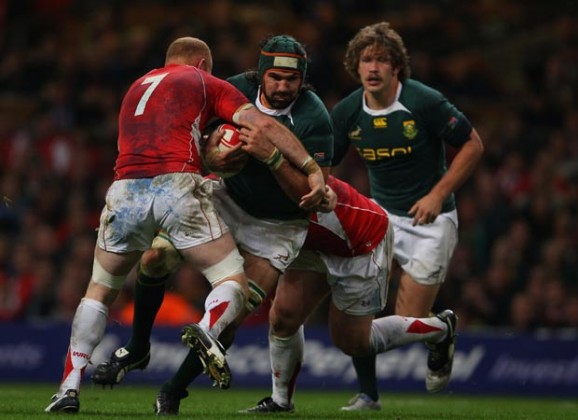
There was a hangdog mood from the start as Martyn Williams recalls: “I ruptured a finger tendon against Natal in the week before the Test so that was the end of my involvement in the tour. I was pretty gutted because I really wanted to play against the Springboks.
“But I'll always remember the night before the match talking to Rob Howley who was the tour captain. He got injured in the Natal match and so he was out of the Test as well and I just recall him turning to me that night and saying, ‘this might be a good one to miss you know'.
“The South Africa coach Nick Mallett called us, ‘probably the worst team in the world', and labelled the match as ‘a pretty pathetic work out before the Tri-Nations'. Unfortunately you couldn't really argue with him. As a nation, when it came to rugby, we were at the lowest point we had ever been.” Cobner didn't hang around for the wake, he flew straight from South Africa to Auckland with the WRU cheque book to camp on Henry's doorstep and the sense of not having a minute to lose was heightened when Henry soon called a Press conference to first announce his appointment and then his departure to Wales that very night to start work. Bloody hell, this was serious.
Henry did many good things for Welsh rugby but was not able to take them to South Africa.
He was gone by the summer of 2002 after a shocking defeat in Dublin but, in truth, was exhausted by his 2001 season with Wales and the Lions, and was immediately replaced by his countryman Steve Hansen who cracked the whip on tour and was at least rewarded with two highly committed performances.
Wales might have been outscored five tries to two en route to a 34-19 defeat in Bloemfontein but their attitude was better and they carried that through to the second Test in Cape Town, a battling 19-8 defeat. No cigar but ballpark.
There was more pain, however, back at Loftus for Wales in 2004 when they coughed up seven tries in a 53-35 defeat although Mike Ruddock's young team showed plenty of spirit and hinted at good things ahead, ie the 2005 Grand Slam.
Wales were also Grand Slam winners in 2008, under Warren Gatland, which was the last time they travelled to South Africa but even Gatland's magic touch couldn't change their fortunes.
Wales' 43-17 defeat at Bloemfontein might have contained a glorious team try for Jamie Roberts but it was their first defeat under Gatland while a week later they flared promisingly only to fade again. Shane Williams scored a first half wonder try and Wales led 21-20 going into the final quarter before the Boks finished it off with two late tries from Jean de Villiers and Bismark du Plessis.
“If we win, we will make history,” concedes Wales assistant coach Shaun Edwards. “It's a mammoth task, probably the toughest place to play rugby in the world, physically. They have an outstanding squad which I think is the best they've had since the 2007 World Cup and the 2009 side who played the Lions. They were the best team in the world then, and this is their best team since.”


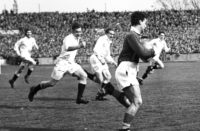

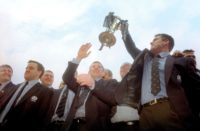























Pingback: รับทำเว็บ WordPress